Description
ABSTRACT
Director Beware! Examining Nigeria’s Strict Directorial Liability Regime for Competition Infringements from a Transcontinental Perspective
Pereowei Subai* and Prince Chiazor Diarah**
This article critiques certain aspects of the Federal Competition and Consumer Protection Act 2018 as they relate to the imposition of sanctions on directors for corporate involvement in anti-competitive conduct. It notes that the Act may have created a strict liability regime for corporate competition law infringements. This approach is not in tandem with best practices in competition regulation, which may counter Nigeria’s desire to develop a viable competitive environment by deterring director misbehaviour. Drawing lessons from other jurisdictions within and outside Africa, notably India, Canada, Singapore and South Africa, this article argues that while it is necessary to penalise the individuals behind companies which infringe competition law, Nigeria should only prosecute persons whose acts or omissions contributed directly to competition infringements. In that respect, it should also provide avenues for non-culpable directors to be able to defend themselves, as this would lead to a just, sensible and practical competition regulation that accords with international best practices.
Keywords: Strict liability, competition law infringements, directors, imprisonment, Nigeria.
INTRODUCTION
Several countries worldwide have enacted anti-competition laws to prevent trade-distorting practices, promote free and fair trade, and foster innovation and economic development.1 It is widely accepted that the absence of robust competition regulation would result in market dominance by few individuals. Where left unchecked, such practices would result in price increases while denying consumers and other excluded producers the opportunity to benefit from free trade.2 Anti-competitive behaviour may hinder economic growth and engender the production of artificial goods and services, which would, in all likelihood, adversely impact economic development. Many countries prohibit competition-distorting activities and impose civil and criminal sanctions on persons/firms in default.
* PhD (Newcastle University), ACIS. Senior Lecturer in Corporate Law, Niger Delta University, Wilberforce Island, Nigeria. Email: pe***********@*****du.ng, Tel:+234(0)8033503374.
** Legal Practitioner. Email: tm************@***il.com; Tel: 09058233007. The authors are grateful to the anonymous reviewer for his/her useful and helpful insights and suggestions, and to Engr. Mrs. Tamunodiepiriye Subai, for her work on Table A.
- Kim and Choi claim that as at 2020, over 130 countries have enacted one form of competition law; see D Kim and YPChoi, ‘Modernization of Competition Law and Policy in Egypt: Past, Present and Future’ (2020) 64(1) Journal of African Law 109.
- See K Dawar and N Ndlovu, ‘A comparative assessment of competition in Africa: identifying drivers of reform in Botswana, Ethiopia, and Nigeria’ (2018) 6 Journal of Antitrust Enforcement 151.

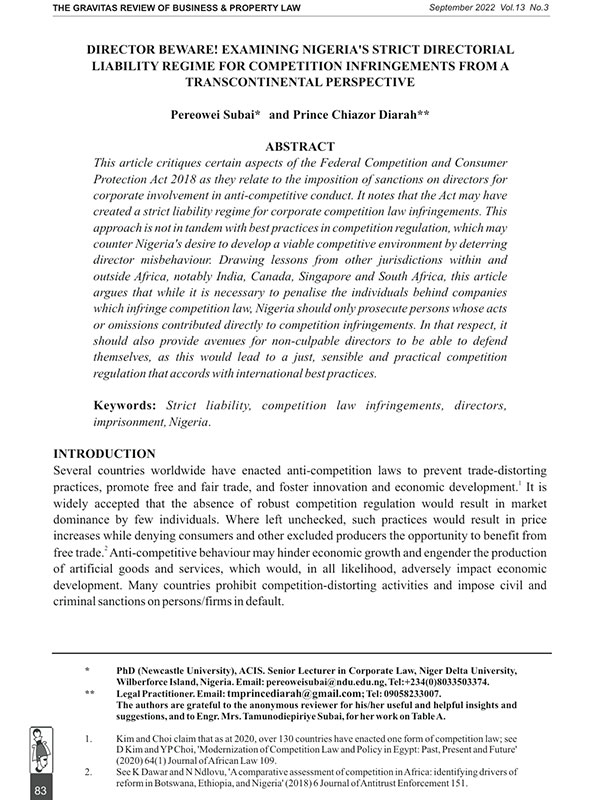
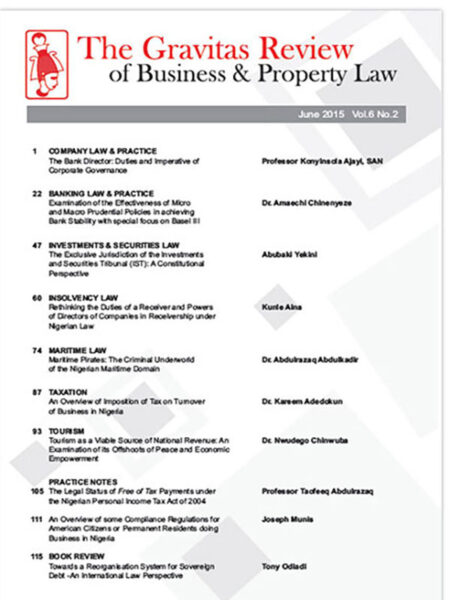
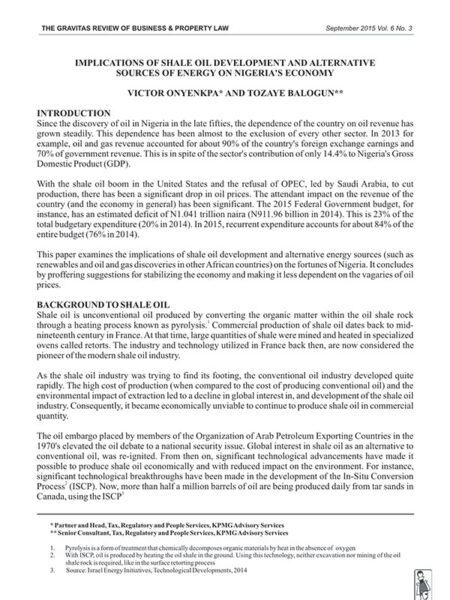
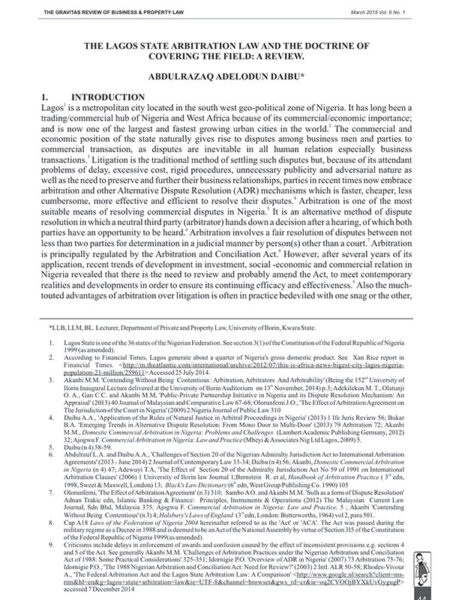
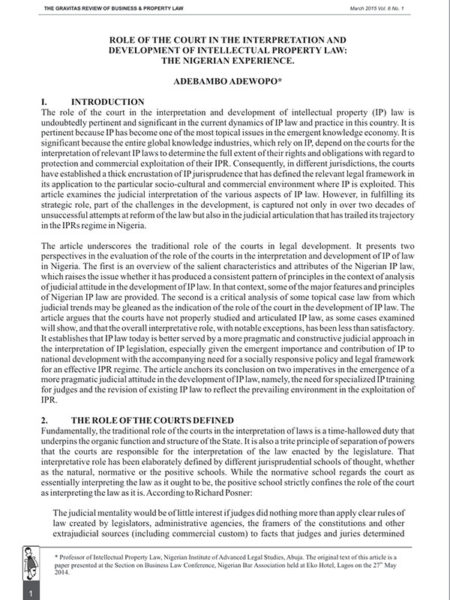


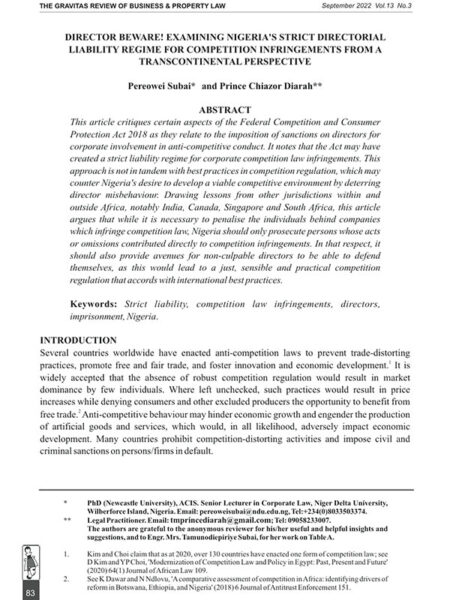
Reviews
There are no reviews yet.